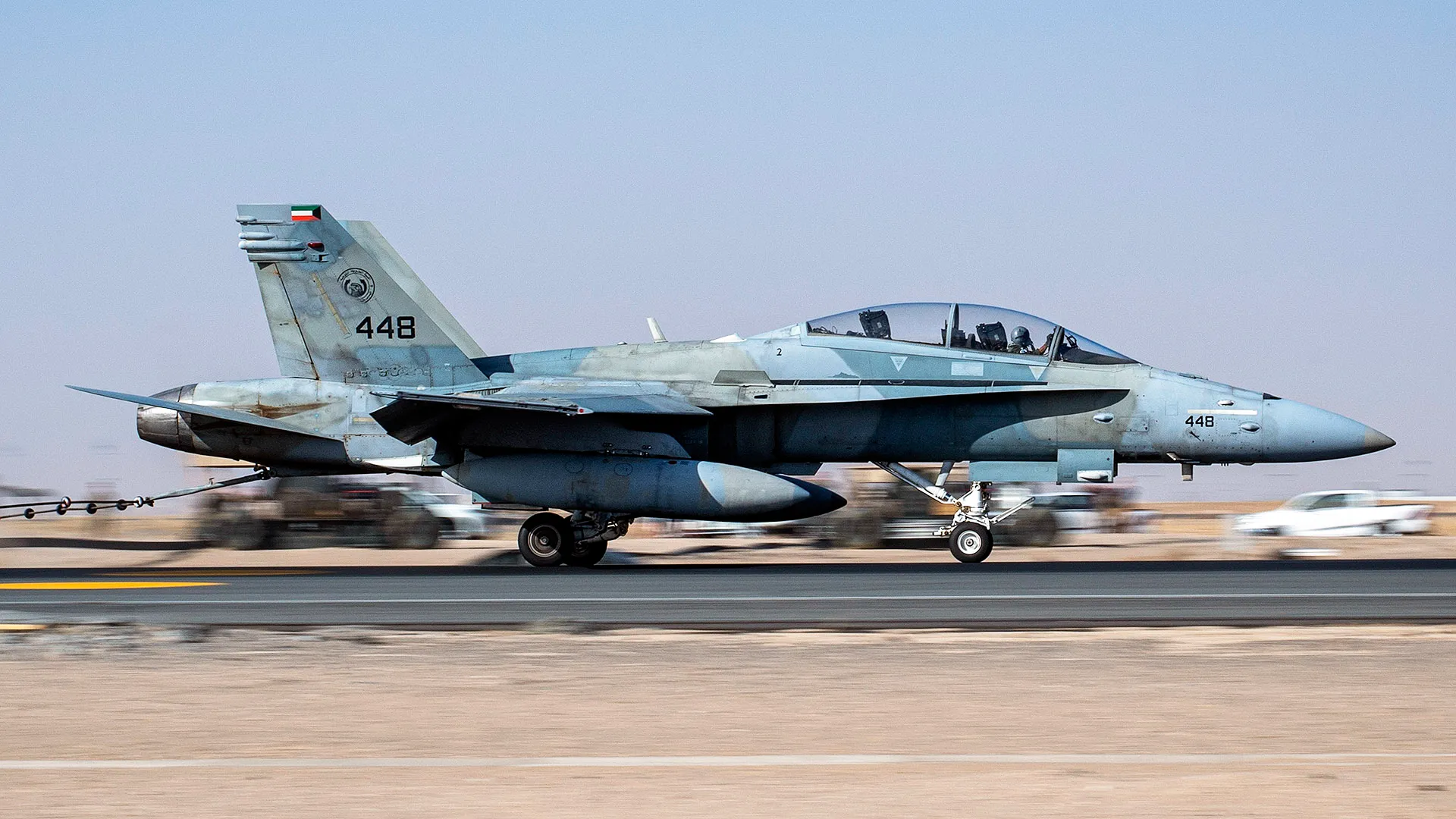Kuwaiti F/A-18 Hornet Responsible For Shooting Down Three USAF F-15E Strike Eagles: Report

The three F-15Es shot down over Kuwait yesterday met their demise at the hand of a Kuwaiti Air Force F/A-18 Hornet, according to a report by The Wall Street Journal’s Lara Seligman. While it was rumored to have been a ground-based air defense system that took the aircraft out, it does make sense that the friendly fire incident was the result of a series of air-to-air engagements, based on the damage to one of the aircraft. That being said, we cannot independently confirm the report at this time.
Seligman’s story is based on three sources “familiar with initial reports of the incident.” Just one Hornet was supposedly involved, launching three missiles and taking down the three Strike Eagles. Thankfully, the crews all survived. The report goes on to state that the ‘blue-on-blue’ incident occurred as multiple Iranian drones were penetrating Kuwaiti airspace. One of these impacted a base that resulted in the death of six Americans.
As we have recently explored in detail, mistaking friendly tactical aircraft for real threats in a very complex and quickly morphing battlespace isn’t unprecedented, as it has happened multiple times before, including in relation to Kuwait on two past occasions. The air-to-air aspect of the story is certainly intriguing and would help explain how the crews survived the shoot-downs. We saw one F-15E spin into the ground with its vertical tails missing and its engines on fire. While this is catastrophic damage, it is not typically what you would see in most engagements from heavier surface-to-air missiles, although every engagement is different, so we can’t rule it out. But three shoot-downs and everyone made it out alive sounds like tail-aspect shots made by smaller yield weapons.
Also, if the Super Hornet employed passive heat seeking missiles (AIM-9 Sidewinder), the F-15E pilots would not have known they were being engaged until the weapon detonated. There are caveats to this, including if the Hornet had used its radar to assist in the Sidewinder lock. But Kuwaiti Hornets were clearly in the airspace at the time defending against drones, so even being painted by their radar may not have indicated how serious the situation was about to become.
We will continue to report as the investigation into this bizarre friendly fire event unfolds.
Contact the author: Tyler@twz.com
